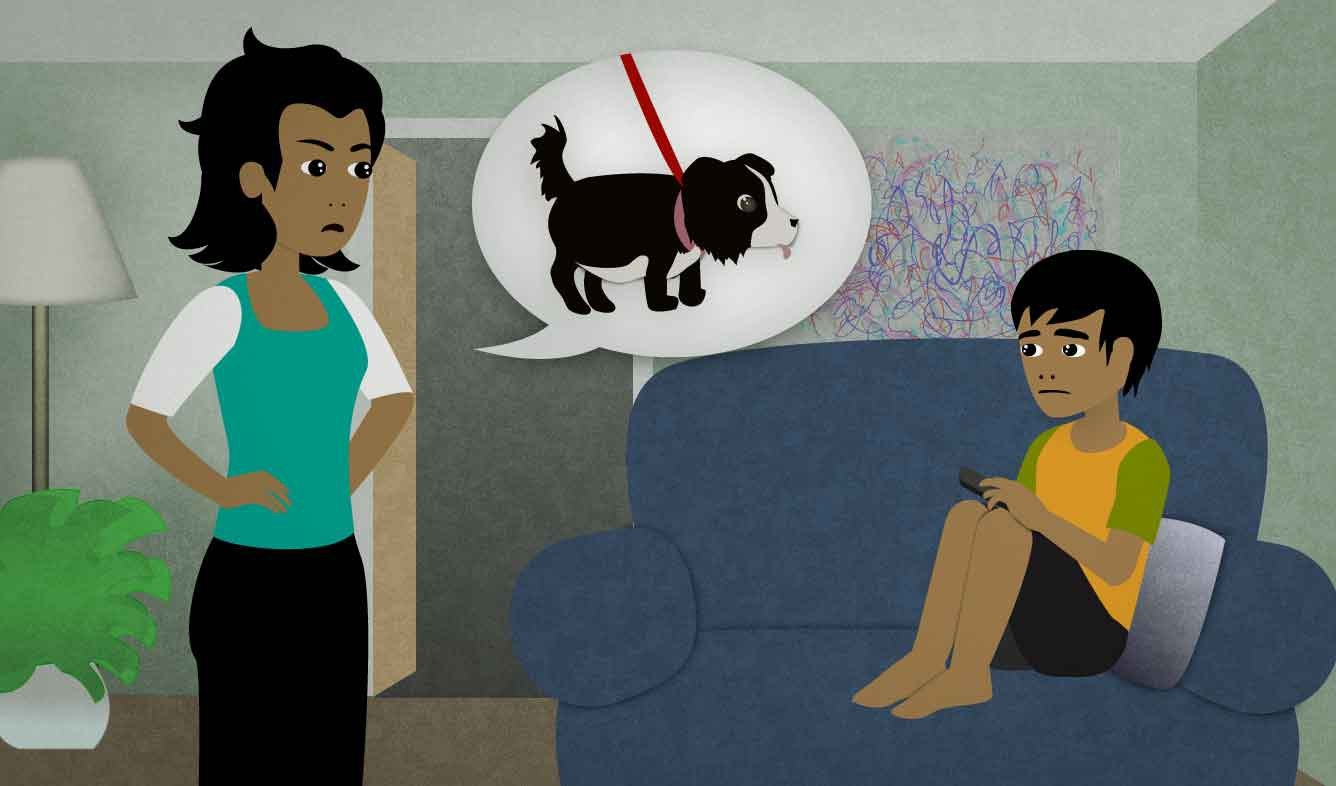“You made a promise. Aren't you going to follow through on it?”
Your son said he would walk his dog every day. Today he doesn't seem interested, so you remind him of his previous promise.
You made a promise. Aren't you going to follow through on it?
Want Video and Sound? Follow us on YouTube

follow through (on a promise)
This means to do what you said you'd do, or do what you promised.
You can express what you're following through by using "follow through on ___":
Are you going to follow through on your promise?
You can express what the promise was using "(someone's) promise to ___"
I'm starting to think that she might not follow through on her promise to pay us back.
make a promise
In English, we can “promise” or we can “make a promise.” These are very similar in meaning. “Make a promise,” however, has a little more emphasis, and sounds a little more serious.
When you marry someone, you make a promise to be there for them.
When you want to make a promise, you usually don’t say ‘I make a promise.’ You can just say ‘I promise’:
I promise, I won't laugh. Now show me the picture!
‘Make a promise’ is for talking about promises:
I made him a promise, and I intend to keep it.
Aren’t you going to (do something)?
When someone should do something, but it seems like they aren’t going to, you might say “Aren’t you going to ___?”
Aren’t you going to say thank you?
Aren’t you going to tell her we can’t come?
Although this phrase has the form of a question, it’s more of a command. You wouldn’t want to say this to anyone you don’t know well. It shows some disapproval and is rather direct.
